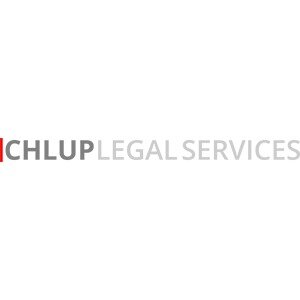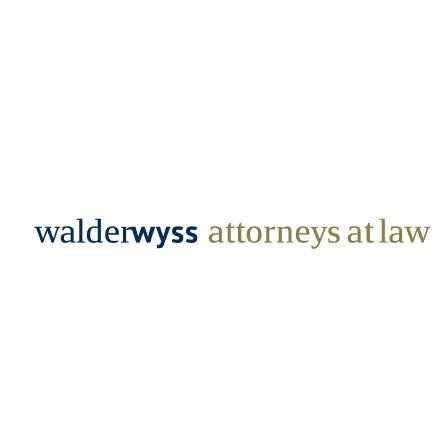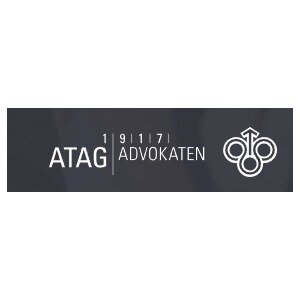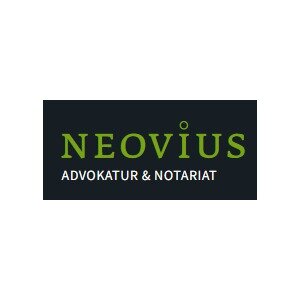Best Nonprofit & Charitable Organizations Lawyers in Basel
Share your needs with us, get contacted by law firms.
Free. Takes 2 min.
List of the best lawyers in Basel, Switzerland
About Nonprofit & Charitable Organizations Law in Basel, Switzerland
Basel, Switzerland, has a rich tradition of fostering philanthropic activities and supporting nonprofit and charitable organizations. Nonprofit organizations (NPOs) in this region function under Swiss law that aims to promote social welfare, uphold public interests, or serve specific community needs without profit-making as a principal objective. These organizations are diverse, covering areas such as education, health, culture, and environmental preservation. Structurally, NPOs may be foundations, associations, or cooperatives, each governed by distinctive regulations and legal frameworks that ensure transparency, accountability, and effective governance.
Why You May Need a Lawyer
There are numerous situations where individuals or entities involved with nonprofit and charitable organizations in Basel may require legal assistance:
- Formation and Registration: Establishing an NPO involves complex legal procedures and documentation requirements that a lawyer can navigate effectively.
- Compliance and Governance: Ensuring the organization aligns with federal, cantonal, and local regulations demands legal expertise to prevent potential compliance issues.
- Taxation Matters: Lawyers can provide guidance on tax exemptions or reliefs available to nonprofit entities, which can be critical for budgeting and financial planning.
- Contracts and Agreements: Drafting and reviewing legal documents such as partnerships, donations, and service agreements require professional legal input to protect the organization’s interests.
- Litigation and Dispute Resolution: Lawyers can help resolve disputes with stakeholders, donors, or between members efficiently and legally.
Local Laws Overview
Basel, as part of Switzerland, adheres to a defined legal structure for nonprofit organizations, primarily governed by the Swiss Civil Code. Key aspects include:
- Foundations: These are entities set up through an endowment to pursue a specific purpose, requiring regulatory oversight by cantonal authorities.
- Associations: Formed by a group of individuals or legal entities for a non-commercial purpose, they must have defined statutes and be registered for legal recognition.
- Tax Exemption: Nonprofits may apply for tax exemptions if their purpose aligns with statutory goals such as education, art, scientific research, etc.
- Financial Transparency: Organizations must maintain clear records and may be subject to audit, particularly those accepting public donations.
Frequently Asked Questions
What are the legal forms available for nonprofits in Switzerland?
In Switzerland, nonprofits can be structured as associations, foundations, or cooperatives, each with specific legal characteristics and requirements.
Do all nonprofit organizations qualify for tax-exempt status?
No, to qualify for tax-exempt status, a nonprofit's objective must align with certain public welfare categories. Applying and meeting regulatory conditions is essential.
Are there mandatory registration requirements for nonprofits in Basel?
Yes, while associations do not have to be registered to exist legally, registration is required for official recognition. Foundations must be registered with supervisory authorities.
How can an organization ensure compliance with local laws?
Engaging a legal expert who understands the local regulatory landscape is crucial. Regular audits and consultations can help maintain compliance.
What are the key responsibilities of a board member in a nonprofit?
Board members must ensure governance, manage financial affairs responsibly, and act in the best interest of the organization following its purpose.
Can foreign individuals establish a nonprofit in Basel?
Yes, foreigners can establish a nonprofit in Switzerland, but they must adhere to the same legal regulations and processes as Swiss nationals.
What legal documents are essential for starting a nonprofit?
Essential documents include the constitution or statutes, mission statement, identification and roles of members, and financial projections.
How can a lawyer assist with nonprofit tax issues?
A lawyer can provide detailed advice on eligibility for tax exemption, assist in the application process, and help structure activities to maximize tax benefits.
What is the process for dissolving a nonprofit organization?
Dissolution involves settling debts and obligations, distributing remaining assets per legal provisions or organizational statutes, and formal deregistration.
Are there restrictions on the activities nonprofits can engage in?
Yes, nonprofits must primarily engage in activities aligned with their stated purpose. Engaging in commercial activities must be ancillary to their mission.
Additional Resources
- Basel-City Commercial Registry: Provides registration and supervisory functions for nonprofits.
- Swiss Federal Customs Administration: Offers guidelines on tax exemptions.
- Basel Association of Nonprofits: A network offering support and resources for nonprofit organizations.
- Legal Consideration Platforms: Online resources and forums for discussing nonprofit law compliance and updates.
Next Steps
If you need legal assistance with a nonprofit or charitable organization issue in Basel, consider the following steps:
- Identify the specific legal needs or questions you have regarding your nonprofit activities.
- Reach out to a specialized attorney with experience in nonprofit law to assess your situation.
- Prepare all relevant documentation, such as organizational statutes or past legal decisions, for your legal consultation.
- Engage with local nonprofit networks for support and guidance as you navigate legal complexities.
Remember, proactive legal consultation can ensure compliance and protect your organization's interests effectively.
Lawzana helps you find the best lawyers and law firms in Basel through a curated and pre-screened list of qualified legal professionals. Our platform offers rankings and detailed profiles of attorneys and law firms, allowing you to compare based on practice areas, including Nonprofit & Charitable Organizations, experience, and client feedback.
Each profile includes a description of the firm's areas of practice, client reviews, team members and partners, year of establishment, spoken languages, office locations, contact information, social media presence, and any published articles or resources. Most firms on our platform speak English and are experienced in both local and international legal matters.
Get a quote from top-rated law firms in Basel, Switzerland — quickly, securely, and without unnecessary hassle.
Disclaimer:
The information provided on this page is for general informational purposes only and does not constitute legal advice. While we strive to ensure the accuracy and relevance of the content, legal information may change over time, and interpretations of the law can vary. You should always consult with a qualified legal professional for advice specific to your situation.
We disclaim all liability for actions taken or not taken based on the content of this page. If you believe any information is incorrect or outdated, please contact us, and we will review and update it where appropriate.

















